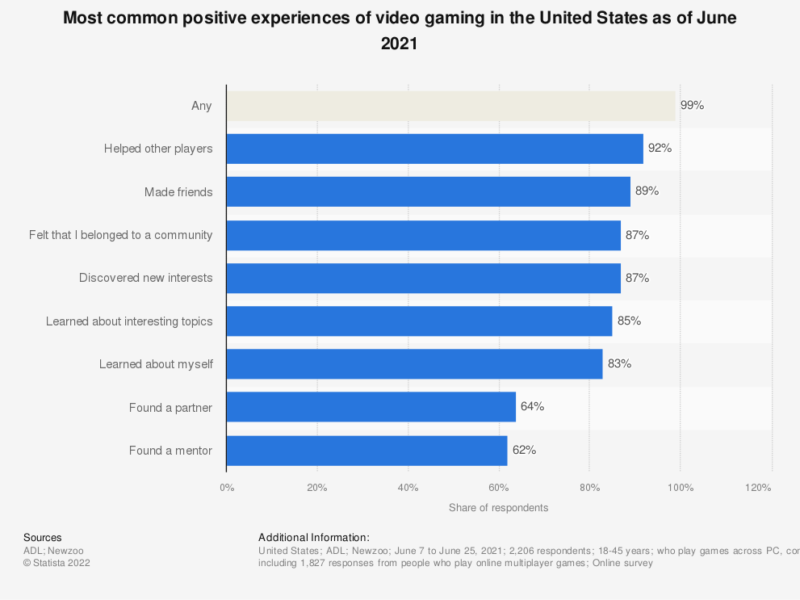Improves Cognitive Functioning
Enhances problem-solving skills
Playing video games can enhance problem-solving skills in individuals. Games often present players with complex challenges that require them to think critically and creatively to find solutions. As players progress through levels or complete tasks, they must adapt to new situations and learn from their mistakes. This process of trial and error can help individuals develop problem-solving skills that can be applied to real-life situations. Additionally, many games require players to make quick decisions under pressure, which can improve their ability to think on their feet and make effective decisions in high-stress situations. Overall, gaming can be a fun and engaging way to improve problem-solving skills and boost mental agility.
Improves memory retention
Playing video games can also improve memory retention. Many games require players to remember specific details, such as the layout of a level or the location of certain items. This can help to exercise the brain’s memory function and improve overall retention. Additionally, some games incorporate puzzles or challenges that require players to remember patterns or sequences, further enhancing memory skills. Studies have shown that playing video games can even help to slow down the effects of aging on the brain, including memory loss. So, if you’re looking to boost your memory skills, gaming may be a fun and effective way to do so.
Increases attention span
Gaming has been found to increase attention span, which is a crucial aspect of mental health and wellness. Playing video games requires a high level of focus and concentration, which can help improve attention span over time. This is especially beneficial for individuals who struggle with attention deficit disorders or have difficulty staying focused on tasks. Additionally, gaming can help improve cognitive flexibility, which is the ability to switch between different tasks and thought processes. By engaging in gaming regularly, individuals can develop better attentional control and improve their overall mental agility.
Reduces Stress and Anxiety
Provides an escape from reality
Gaming can provide a much-needed escape from reality, especially during stressful times. By immersing oneself in a virtual world, gamers can temporarily forget about their problems and focus on the game’s challenges and objectives. This can be particularly helpful for individuals struggling with anxiety or depression, as it allows them to take a break from their negative thoughts and emotions. Additionally, gaming can provide a sense of control and accomplishment, which can boost self-esteem and confidence. However, it’s important to note that gaming should not be used as a substitute for professional mental health treatment, but rather as a complementary tool to promote overall wellness.
Promotes relaxation and mindfulness
Gaming can be a great way to promote relaxation and mindfulness. Many games require players to focus on the present moment and be fully immersed in the game world. This can help to reduce stress and anxiety by providing a temporary escape from real-world problems. Additionally, some games incorporate relaxation techniques such as deep breathing or meditation, which can further enhance the calming effects of gaming. By promoting relaxation and mindfulness, gaming can be a valuable tool for improving mental health and wellness.
Boosts mood and reduces negative emotions
Playing video games can have a positive impact on our mood and emotions. It has been found that gaming can help reduce negative emotions such as anxiety, stress, and depression. This is because gaming provides a sense of escapism and allows players to immerse themselves in a different world, taking their minds off their problems. Additionally, the sense of achievement and progress that comes with gaming can boost self-esteem and confidence, leading to an overall improvement in mood. Playing games with friends or online communities can also provide a sense of social connection and support, further enhancing the positive effects on mental health and wellness.
Fosters Social Connections
Encourages teamwork and communication
Gaming is not just about individual play, but it also encourages teamwork and communication. Multiplayer games require players to work together to achieve a common goal, which can help develop communication skills and promote teamwork. Players must communicate effectively to coordinate their actions and make decisions that benefit the team. This can help individuals develop leadership skills, learn to trust others, and improve their ability to work in a team. Additionally, playing games with others can help individuals build social connections and develop a sense of community, which can have a positive impact on mental health and well-being. Overall, gaming can be a great way to develop important life skills while having fun with others.
Provides a platform for social interaction
Gaming can also provide a platform for social interaction, which is crucial for mental health and wellness. Multiplayer games allow players to connect with others from all over the world, fostering a sense of community and belonging. This can be especially beneficial for individuals who may struggle with social anxiety or have difficulty making friends in real life. Additionally, gaming can provide a shared experience for friends and family members to bond over, strengthening relationships and promoting positive communication. Overall, gaming can be a fun and effective way to connect with others and improve mental well-being.
Creates a sense of community and belonging
Gaming can also create a sense of community and belonging, especially in online multiplayer games. Players can join clans or guilds, participate in forums, and communicate with each other through voice chat or messaging systems. This social aspect of gaming can be particularly beneficial for individuals who may struggle with social anxiety or have difficulty making connections in real life. Being part of a gaming community can provide a sense of belonging and support, as well as opportunities for teamwork and collaboration. Additionally, many gamers report forming long-lasting friendships with people they have met through gaming, further enhancing their sense of community and connection.
Offers Therapeutic Benefits
Helps with pain management
Gaming has been found to be an effective tool for pain management. Studies have shown that playing video games can help distract individuals from their pain, reducing their perception of it. This distraction can also help individuals cope with chronic pain and reduce their reliance on pain medication. Additionally, gaming can release endorphins, which are natural painkillers that can help alleviate discomfort. Virtual reality games have also been used in pain management therapy, allowing individuals to immerse themselves in a different environment and distract themselves from their pain. Overall, gaming can be a valuable tool for individuals looking to manage their pain in a safe and effective way.
Assists in physical rehabilitation
Assists in physical rehabilitation:
Gaming can also be used as a tool for physical rehabilitation. Many games require physical movement, such as dancing or sports games, which can help individuals recovering from physical injuries or illnesses to regain strength and mobility. Additionally, virtual reality games can provide a safe and controlled environment for individuals to practice movements and exercises without the risk of further injury. Gaming can also be a fun and engaging way to motivate individuals to stick to their rehabilitation routines, making the process more enjoyable and less daunting. Overall, incorporating gaming into physical rehabilitation programs can have numerous benefits for both physical and mental health.
Provides a non-invasive form of therapy
Gaming can provide a non-invasive form of therapy for individuals who may not feel comfortable seeking traditional therapy methods. It allows individuals to escape from reality and immerse themselves in a virtual world where they can work through their emotions and problems without feeling judged or vulnerable. Additionally, many games have been designed specifically to address mental health concerns such as anxiety and depression, providing players with coping mechanisms and strategies to manage their symptoms. Gaming can also be a useful tool for individuals undergoing physical therapy or rehabilitation, as it can help improve hand-eye coordination and cognitive function. Overall, gaming provides a unique and accessible form of therapy that can benefit individuals of all ages and backgrounds.
Promotes Personal Growth
Encourages self-reflection and introspection
Gaming can also encourage self-reflection and introspection. Many games require players to make decisions that affect the outcome of the game, which can lead to self-reflection about their own decision-making skills. Additionally, some games have storylines that explore complex themes and moral dilemmas, which can prompt players to reflect on their own values and beliefs. Through gaming, individuals can gain a better understanding of themselves and their thought processes, leading to improved mental health and wellness.
Builds resilience and perseverance
Gaming can help build resilience and perseverance in individuals. Many games require players to face challenges and obstacles, and overcoming them can help develop a sense of resilience. Additionally, games often require players to repeat tasks or levels until they are successful, which can help build perseverance and the ability to keep trying even in the face of failure. This can translate to real-life situations where individuals may face setbacks or challenges, and the skills developed through gaming can help them push through and ultimately succeed. Overall, gaming can be a valuable tool for building mental toughness and resilience.
Fosters creativity and imagination
Playing video games can also foster creativity and imagination. Many games require players to think outside the box and come up with unique solutions to challenges. This can help develop problem-solving skills and encourage players to think creatively. Additionally, some games allow players to create their own characters, worlds, and stories, which can further enhance their imagination and creativity. By engaging in gaming, individuals can tap into their creative side and explore new ideas and concepts in a fun and interactive way.


